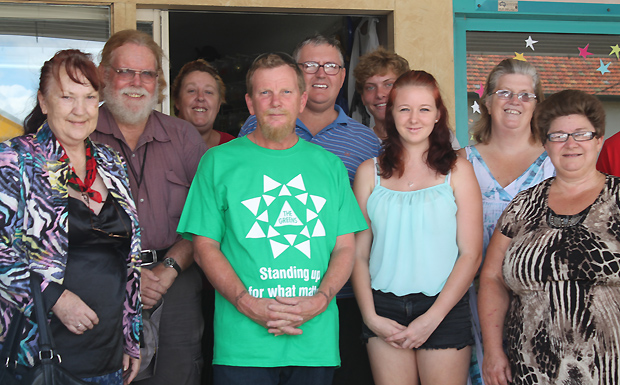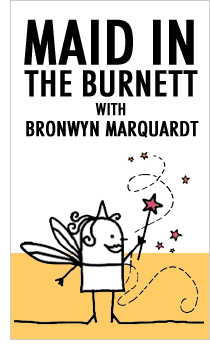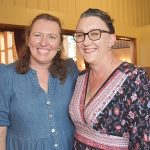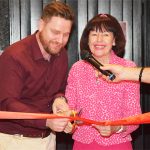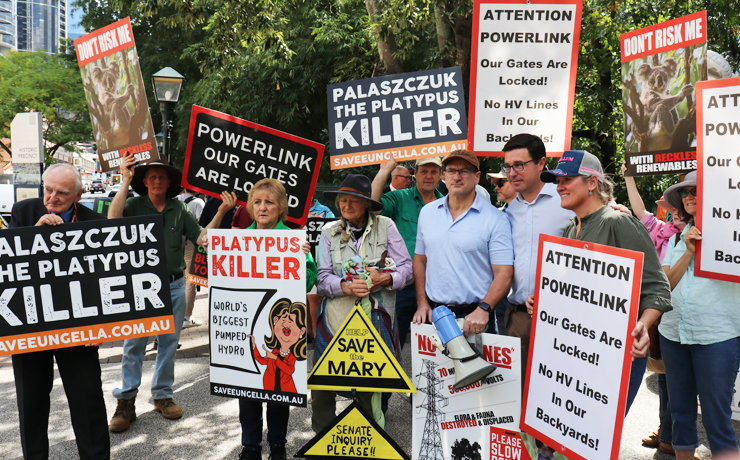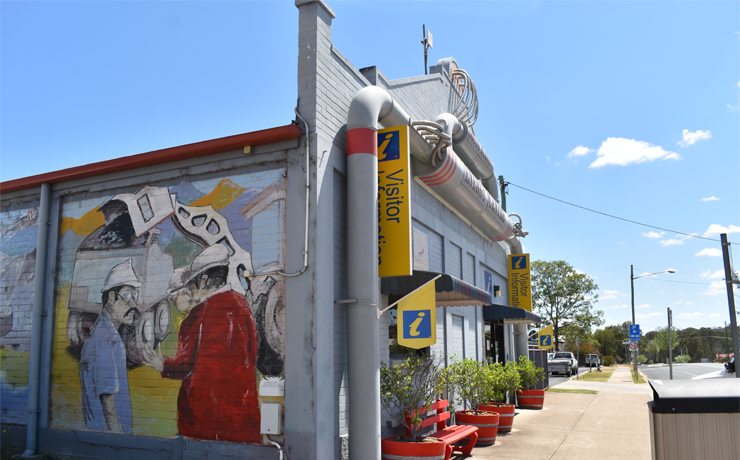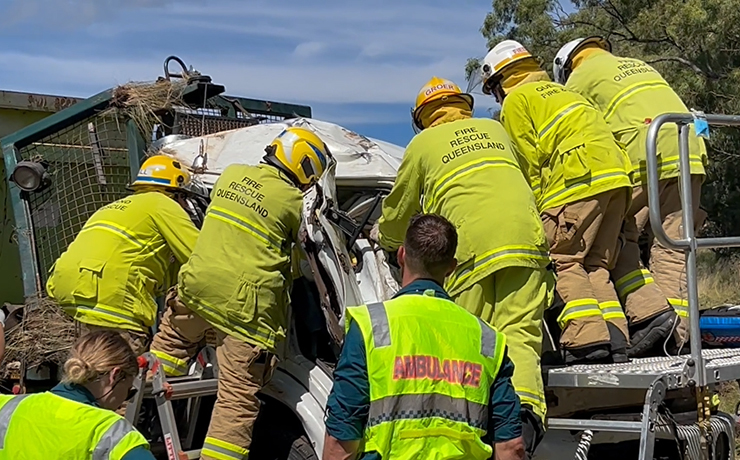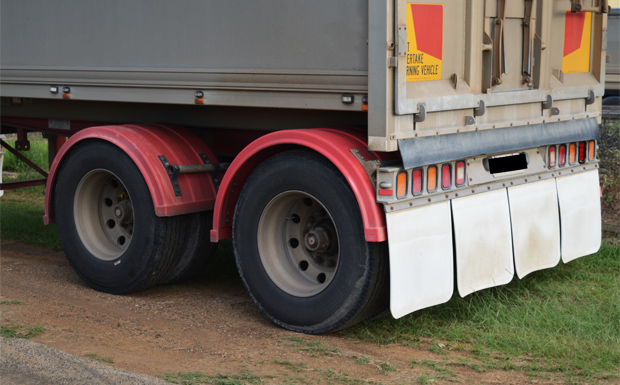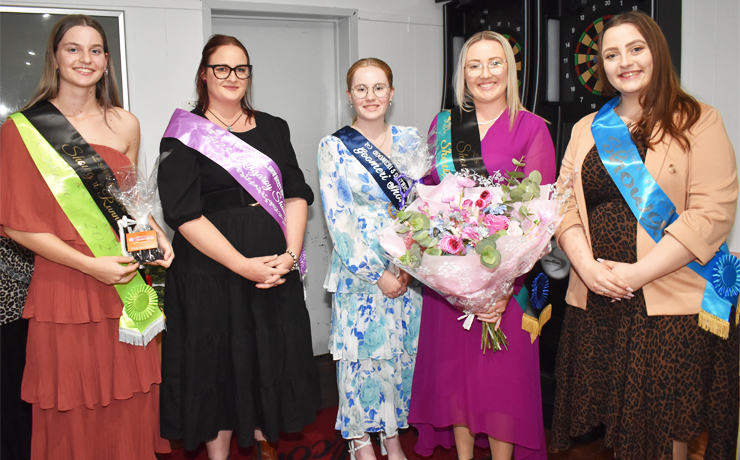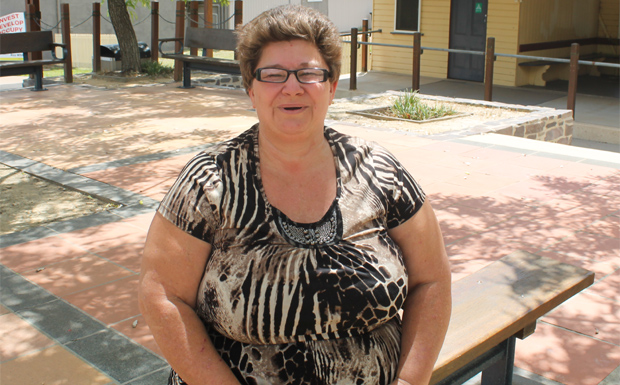
by Bronwyn Marquardt *
Kaye Hibbs’ eyes mist over as she recalls the years where she was tortured by undiagnosed mental illness.
It’s hard to reconcile the woman she’s describing with the softly-spoken, kind-hearted woman I’m seeing now.
As we chat, Kaye stops to offer cheery words to volunteers, take phone calls from those in need, and offer genuine hugs.
It’s difficult to imagine her raising her voice, let alone being abusive or neglectful to loved ones or herself.
Yet Kaye insists she was once that person. And she almost lost everything before rescue came in the form of a proper diagnosis and eventually, the correct treatment.
Now 51, Kaye is the brains and the energy behind the Pathway 2 Hope, a local drop-in centre for people with mental illnesses, particularly those who need support in-between visits to doctors, psychologists and other health professionals.
“It’s particularly important in country areas where there just aren’t enough facilities for people with mental illnesses,” Kaye says.
“It can be weeks before you can even get in to see a psychologist once you’ve been diagnosed. And there is no full-time psychiatrist here at all. Yet we know that people who live in rural areas are at a greater risk of depression and suicide than people in the city.”
Kaye is a typical example of a person who fell through the cracks.
As a young girl she felt abandoned by her mum, when financial circumstances forced her mother to get a job.
That left young Kaye to walk home from primary school alone.
One day she was sexually assaulted – something she never felt able to talk about. Instead, she pushed it to the back of her mind and tried to forget.
She moved out of home when she was 16, but had a bad experience with flatmates that sent her back home to where she didn’t want to be.
There was a teenage pregnancy and a termination, something her parents thought was for the best at the time.
“That scarred me for life,” she said.
“I’ve only recently been able to forgive myself, because to me, that’s murder.”
Escape came in the form of marriage to a man who gave her a daughter and two sons. But the happy ending she longed for never came.
Looking back, she knows now she was also suffering with mental illness, but she was too busy surviving at the time.
She didn’t cope well, often venting frustration, fears and sadness out on her children, and her mother.
“I refused to admit there was something wrong, and I took it out on others,” she said.
“That doesn’t make it right. I abused my them, verbally and emotionally. But no matter how angry they will ever be to me, they will never be as angry as I’ll be to myself.
“I acknowledge that what I did to my kids was wrong. But I love my kids.
“My daughter has forgiven me. I’ve tried to contact and talk to the boys but they don’t really want to know.
“But I was sick then, and I am being treated now. I am a different person. I wish they understood that.
“I can never ever take back what I did or how I treated my kids. I can only express how sorry I am.”
Although Kaye sought help in her 20s, her doctor at the time suggested she ‘probably had manic depression’, but the medication she needed would make her feel ‘crook’.
Disheartened, she walked out of the medical centre and put it out of her mind.
Shortly before Christmas in 2010, Kaye read a paper which outlined the signs of mental illness, including sadness, suicidal thoughts, self-harm, and mood swings.
“I had a really good think about it, burst into tears, and made an appointment to see a Mental Health Intake Worker at the Kingaroy Hospital,” Kaye said.
She was accepted as an outpatient, seen by a psychiatrist, and diagnosed with four mental illnesses and later, a fifth – borderline personality disorder, bipolar, anxiety, depression, and post-traumatic disorder.
All the pain she’d kept bottled up inside from her traumatic past hadn’t helped her condition.
“I often joke that I got mental illness for Christmas that year,” Kaye smiles.
Yet Kaye was discharged from hospital and was still struggling before her doctor finally found a medication which worked for her.
“That medication changed my life. I was able to think clearly, I had motivation; it was like a cloud had lifted. I was a different person.”
Counselling with a clinical psychologist also helped, and Kaye sees her local doctor and nurse regularly if she needs to talk.
“Once I acknowledged my illness and started taking the medication I talked to Mum, and listened to her. I realised I had been wrong about so many things, and I said: ‘I’m so sorry’.
“And she said we could start again, and we have. Things are better between us now than when we were small and she is 74.”
Her father died of terminal cancer in November 2000. Kaye is now doing well and is in ‘a good place’ now her condition is being successfully managed.
Kaye’s passion is Pathway 2 Hope, the non-for-profit organisation she set up to support other people in the South Burnett with mental illness.
The centre offers information, friendly shoulders, and support to people who think they may have a mental illness and need help, and also to their family and friends.
Pathway To Hope is also there for those who are diagnosed but have to wait long periods before they can see their health professionals.
“My focus is on people with a mental illness, their carers and families, having someone to go to when they need to, seven days a week. I’m here five days a week, but have my phone on me every single day.
“There is no judgment here. People can come here and be accepted for who they are.”
Staffed by Kaye and other volunteers, and the centre relies on donations to survive, although they eventually hope to be self-sufficient.
“We’re not professionals, we are just here to help and offer support. Everything is confidential and we can give out business cards to see a doctor, or tell people to go to Mental Health to see an intake worker so they can see a psychiatrist for proper diagnosis.”
The drop-in centre is particularly important in the rural sector, which is the worst-affected area for mental health in Australia.
“There is one person with mental illness for early 2000 people in the South Burnett,” says Kaye.
“But we focus on the positives here. You can’t change the past; you can only change the future. I could be negative and wonder why did I have to get five mental illnesses? But I’ve turned it into a positive because it means I can be here helping others, making sure they don’t fall through the cracks like I did.
“If I was to offer advice to anybody it’s don’t be ashamed of having a mental illness, be ashamed of not doing anything about it.”
Pathway 2 Hope’s shop and drop-in centre is at 141 Haly Street, and is open from 9:00am to 3:00pm Monday to Friday.
The centre is having a garage sale to raise funds on February 21, 22 and 23.
- For more information visit the Pathway 2 Hope website
